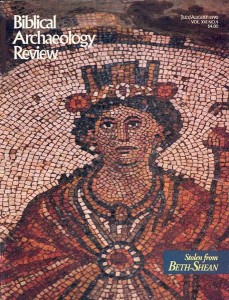The Dead Sea Scroll Monopoly Must Be Broken
“Why won’t the scholars assigned to edit the Dead Sea Scrolls allow anyone to see photographs of the unpublished manuscripts?”
That is the question that almost immediately arises in any discussion of the Dead Sea Scroll scandal.
We have no good answer. Indeed, we don’t think there is one.
Our usual answer is, “You really ought to ask the scroll editors.”
We recently received a letter from Professor Burton Caine, of Temple University Law School, suggesting we invite chief scroll editor John Strugnell to give his views. We promptly took up the suggestion and issued the invitation to Strugnell on April 2, 1990. To date, no reply.
Most people’s first thought is that the unpublished texts must contain a theological bombshell that someone—the scholars, a government, a religion—is trying to suppress. This is surely not the case.
What then is the reason?
The scroll editors will never admit it, but the reason is simply the craving for power and control that motivates all monopolists—that and the fear of competition.
During the past year, articles and interviews have appeared in hundreds of publications and on radio and television shows all over the world decrying the failure to release the unpublished texts. Many of the articles and interviews include statements from the recalcitrant scholars. We have culled these statements in an effort to understand what lies behind the intransigence of the scroll editors.
Already a library member? Log in here.
Institution user? Log in with your IP address.

